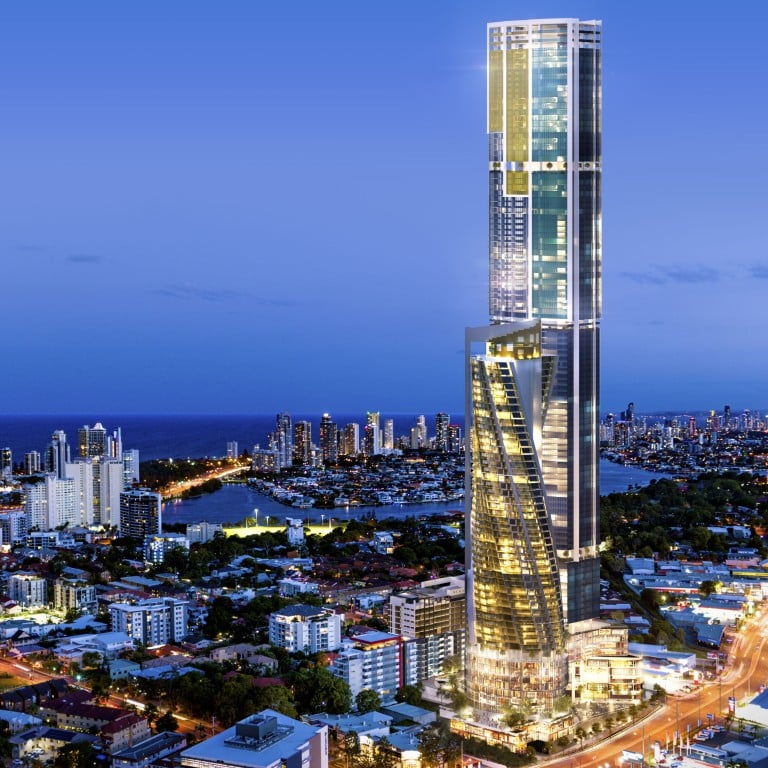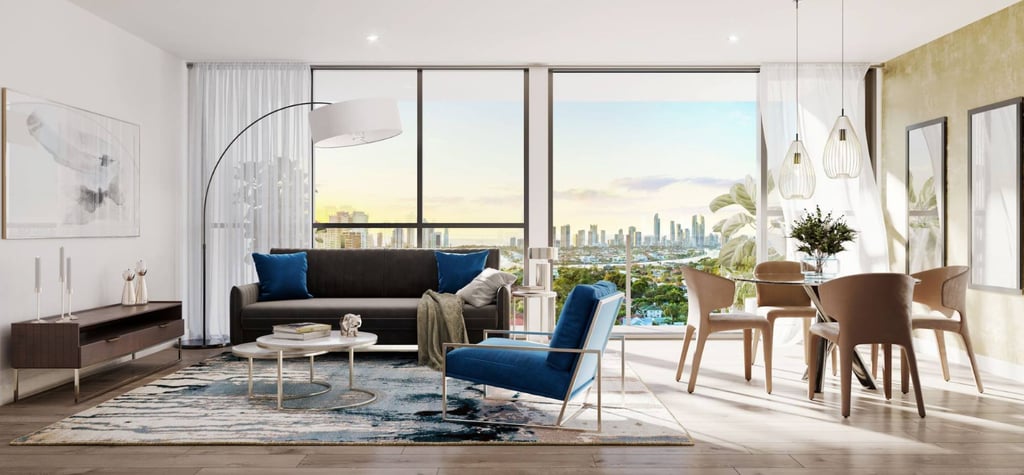Where are Chinese property investors buying now? Why Thailand and Australia are booming, from Regal Azzura in Queensland to Bangkok’s The Livin Ramkhamhaeng

- Queensland has been gaining traction over New South Wales for its affordability and laid-back lifestyle – something that Regal Azzura offers in abundance
- Thailand remains a popular investment opportunity among Chinese buyers, for its low-cost living and schooling, but feels like a ‘millionaire lifestyle’ elsewhere
The newly released annual report by Australia’s Foreign Investment Review Board shows a significant drop in foreign applications to invest in Australian property.
Across all sectors, the number of applications to invest declined, but the total value of approved investments increased from US$134 billion (A$195.5 billion) in 2019-20 to US$160 billion in 2020-21, a 19 per cent increase.
Commercial property attracted the highest value of proposed investment, totalling US$56 billion, almost double the previous year’s figure of US$29 billion. The data, which reflects investor intentions, not actual purchases, shows the United States as the top source of proposed investment by value in 2020-21, followed by Singapore, Canada, China and Germany.
Queensland is more affordable, offers a great lifestyle, and has abundant new development property for sale
Continuing a trend evident since the 2015-16 financial year, foreign demand for homes in Australia keeps dropping. The 4,384 residential real estate investments approved were down 37.8 per cent from a year earlier, and their total value dropped by US$4.6 billion o US$7 billion. This relegated residential property to sixth place across seven categories, with only agriculture, forestry and fishing ranking lower.

One surprise trend is that Queensland, accounting for 21 per cent of investment approvals, has risen in the popularity stakes to now rank second behind Victoria’s 37 per cent. Traditional front runner New South Wales slumped to third place with just 17 per cent of investment approvals, prompting Juwai IQI co-founder and group managing director Daniel Ho to ponder: “Is Queensland becoming the new first state of Australia at the expense of New South Wales?”
“For the first time, Queensland received more approvals for an investment than New South Wales,” he added. “Queensland is more affordable, offers a great lifestyle, and has abundant new development property for sale. In New South Wales, high construction costs, unaffordability and constrained infrastructure contributed to the lower number of purchases.”
Pandemic-related travel restrictions are just one reason for declining demand for Australian property, Ho believed.
“It is now harder to finance a purchase in Australia, foreign buyer stamp duties are still high, and foreign investment application fees are higher than before,” he said.
Still, Ho believes Australia remains “very attractive” to foreign buyers. “The high costs are balanced out by a strong educational offering, lifestyle benefits, proximity to Asia and dependable markets and economy,” he said. “The fact that total approvals for an investment increased by 19 per cent despite the pandemic shows how good Australia’s brand is. It also shows how much the country depends on foreign capital to achieve its potential. In a year of unprecedented global disruptions to trade, investment and travel, Australia still came out a winner.”
Australia holding interest of Chinese buyers
This appears to be true among Chinese buyers especially, supported by traffic on Juwai IQI’s website, with Australia the most searched location in the first quarter of 2022. For the four full years previously, 2018–2021, Thailand was the most searched location. After Australia, which gained an extra 82 per cent of inquiries compared to the first quarter of 2021, Chinese buyers’ favourite countries so far this year are Thailand, Canada, the United States, Malaysia, the United Kingdom, the United Arab Emirates, Japan, Greece and Vietnam.
[Australia is] close, welcoming, appealing, and has been benefiting from blistering property price growth